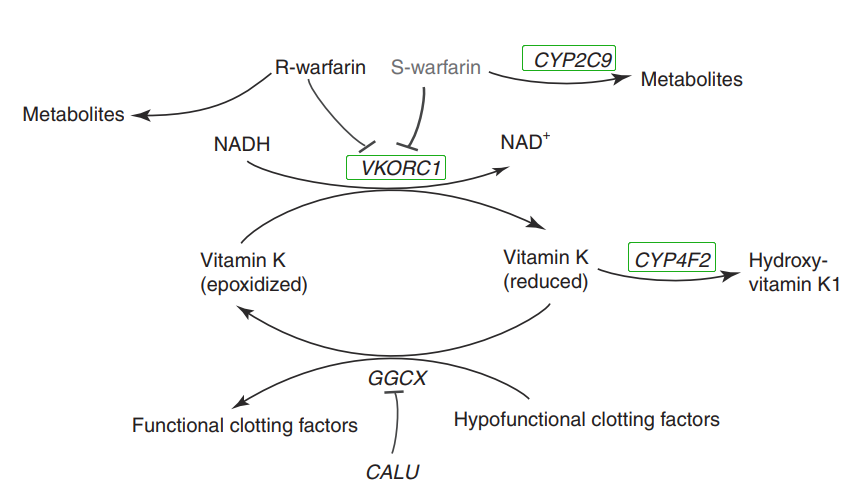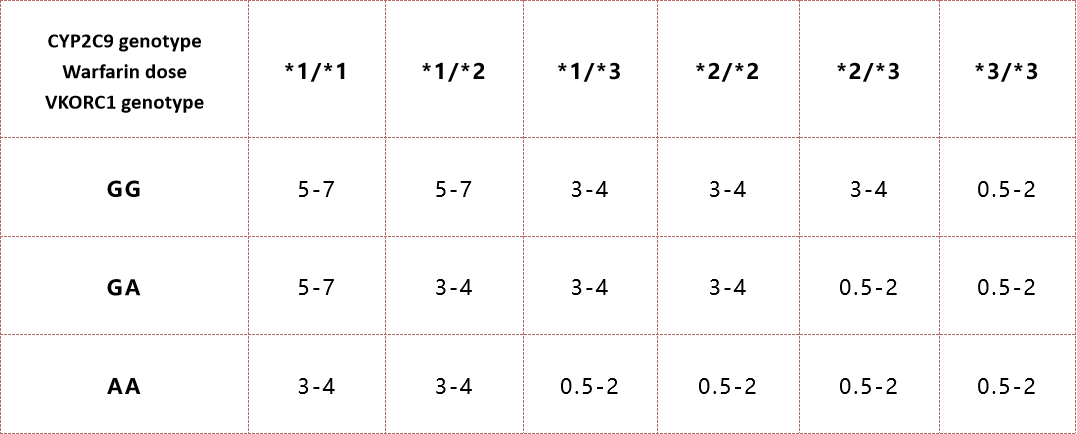Genetic testing guides warfarin dosing
Date:2023-03-01
warfarin is an oral anticoagulant drug, which can inhibit the synthesis of vitamin K-dependent clotting factors, change the hypercoagulable state of blood, prevent thrombosis, and is suitable for the prevention and treatment of thromboembolic diseases.
The stable dose of warfarin varies greatly among individuals
Warfarin has a wide range of clinical indications and sufficient clinical evidence, and millions of patients worldwide are currently using warfarin.
At the same time, warfarin also has many disadvantages, such as narrow therapeutic window (effective therapeutic concentration 2.2±0.4μg/ml), large individual differences in dose, and the anticoagulant effect is affected by many factors such as genes, drugs, diet, etc., so that patients need frequent blood drawing during treatment to monitor the International standardized ratio (INR).
Worldwide, warfarin is one of the leading causes of hospital admissions due to adverse drug events. It is estimated that eight adverse bleeding events occur per 100 patients receiving warfarin anticoagulant therapy each year.
Therefore, the key to warfarin anticoagulant therapy is to determine the patient's warfarin dose needs and carry out individualized precision medicine to control INR within the target range and reduce the risk of bleeding. Genetic factors are the most important factors influencing the anticoagulant effect of warfarin.
Genetic factor
① Pharmacogene polymorphisms associated with warfarin. A large number of studies at home and abroad have found that the polymorphism of certain sites encoding cytochrome P4502C9 (CYP2C9) and vitamin K REDOX reductase C1 (VKORC1) can lead to a decrease in the demand for warfarin, and may also be associated with an increase in clinical adverse reactions.
②Congenital warfarin resistance: Patients with congenital warfarin resistance require 5-20 times higher doses than the average to achieve anticoagulant efficacy, which may be related to the different affinity between warfarin and liver receptors.
③ Gene mutation of coagulation factor.
Mechanism of action of warfarin
Warfarin is composed of two racemes, S- and R-. The main anticoagulant is S-warfarin, and more than 85% of S-warfarin is metabolized to inactive metabolites by CYP2C9.
VKORC1 is the target of warfarin action, warfarin by inhibiting the action of vitamin K epoxide reductase, so that vitamin K epoxide can not be reduced, thus inhibiting the activation of coagulation factors and play an anticoagulant effect.

▲ Mechanism of action of warfarin
Genetic testing guides warfarin dosing
Pharmacogenomic studies have shown that VKORC1 and CYP2C9 genes have more genetic polymorphisms, contributing 6%-37% and 5%-22% to individual differences in warfarin dosage, respectively, which can affect the metabolism of warfarin and play a key role in individual differences in warfarin dosage. The dose of warfarin required to achieve the same anticoagulant effect in patients with different gene metabolic types can vary by up to 20 times between different individuals.
The FDA recommends that fawarin be tested for CYP2C9 and VKORC1 before use, and provides initial dosing recommendations for patients with different genotypes.

▲Initial Dosage recommendations for warfarin for CYP2C9 and VKORC1 genotypes (mg/ day)
Determining the initial dose of warfarin according to the genotype and adjusting the maintenance dose combined with the INR detection value can greatly reduce the risk of warfarin administration.
MerlinBiomedical offers dose-guided warfarin testing to provide scientific guidance on your personalized medication.


